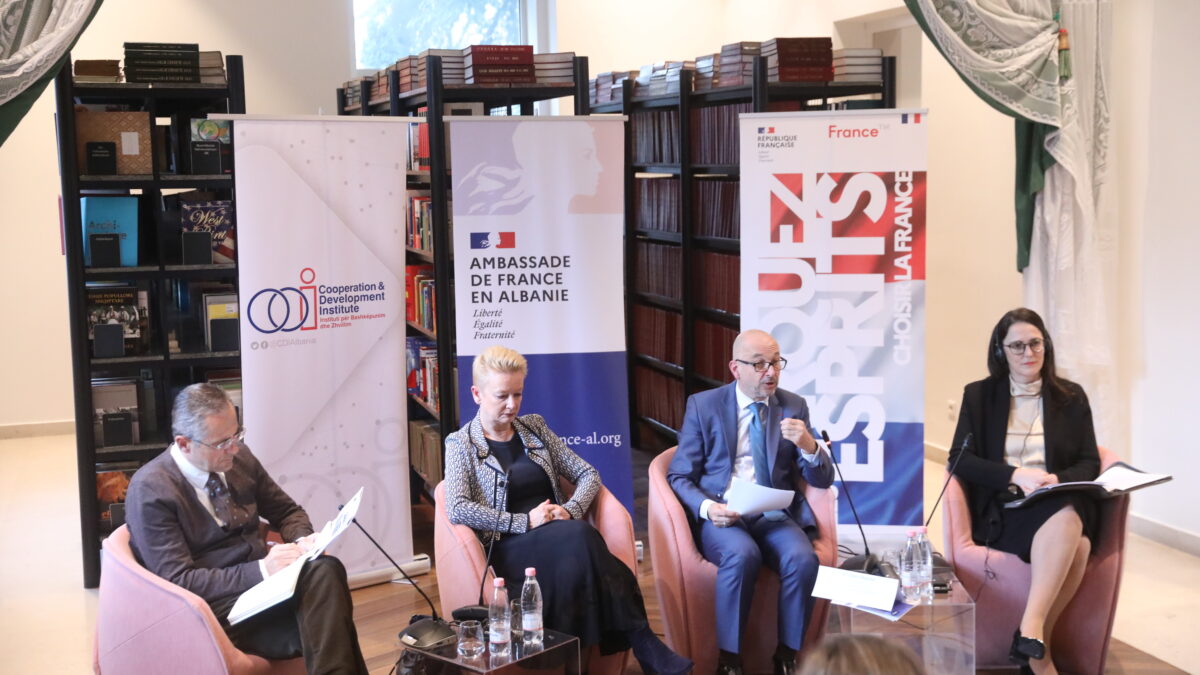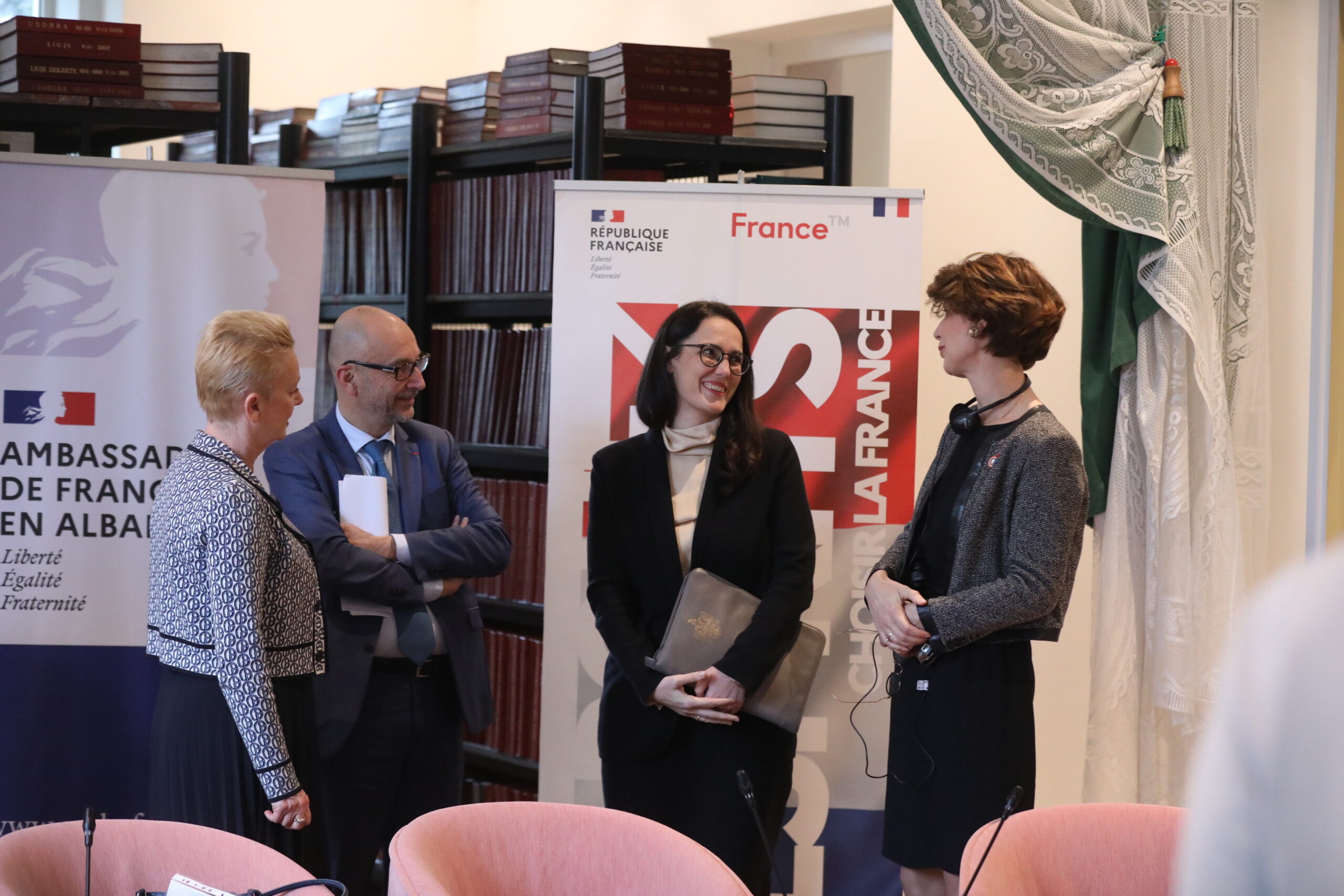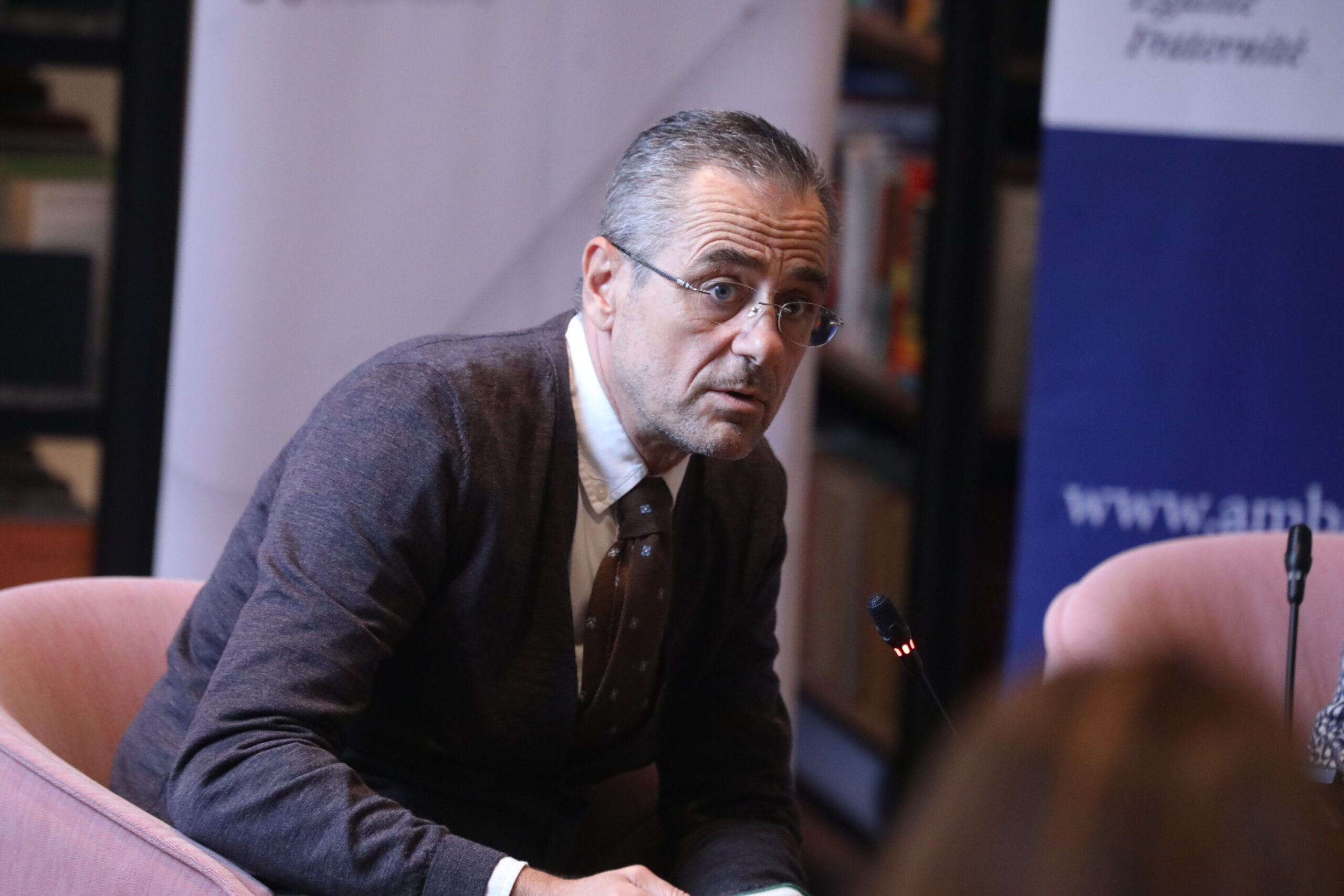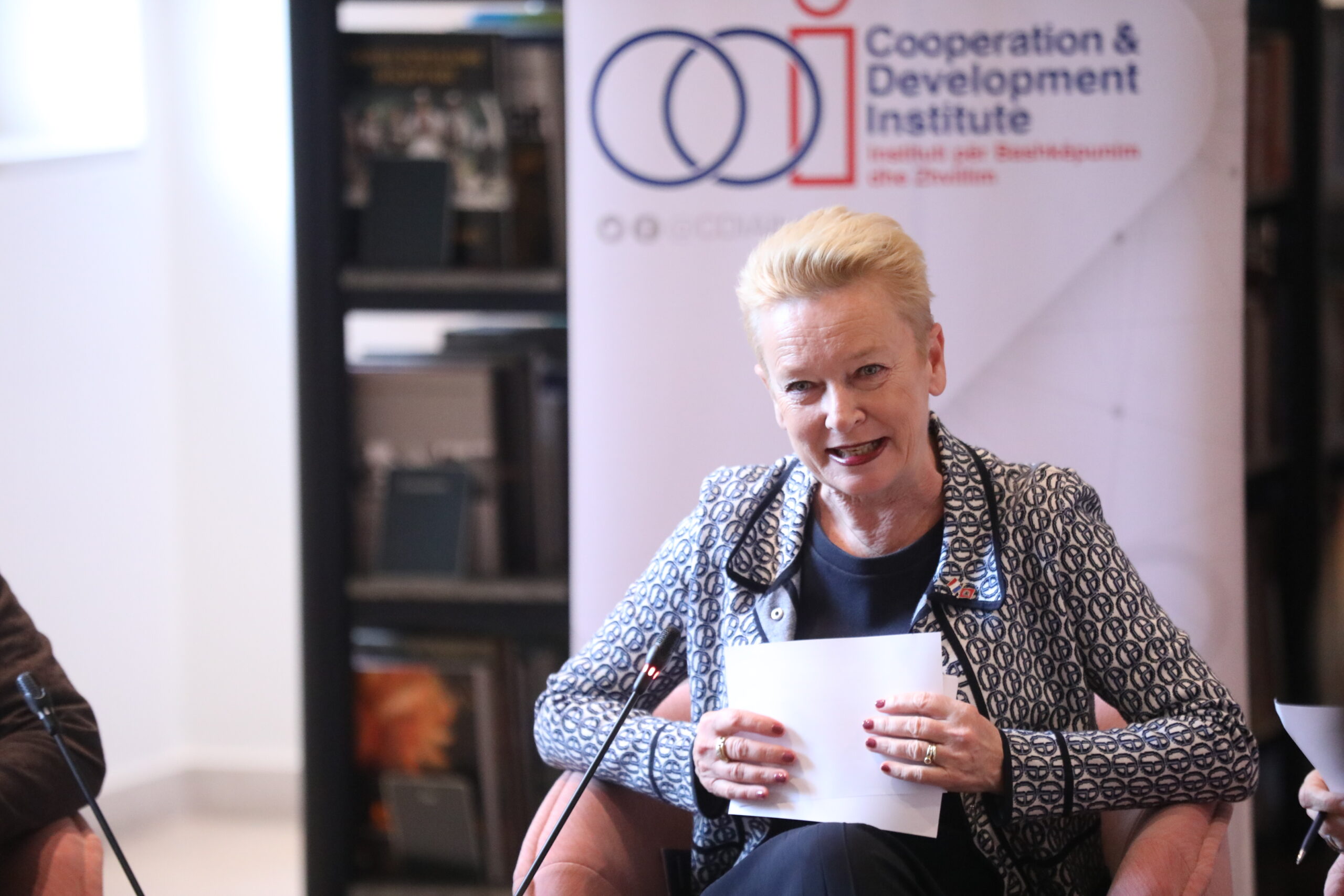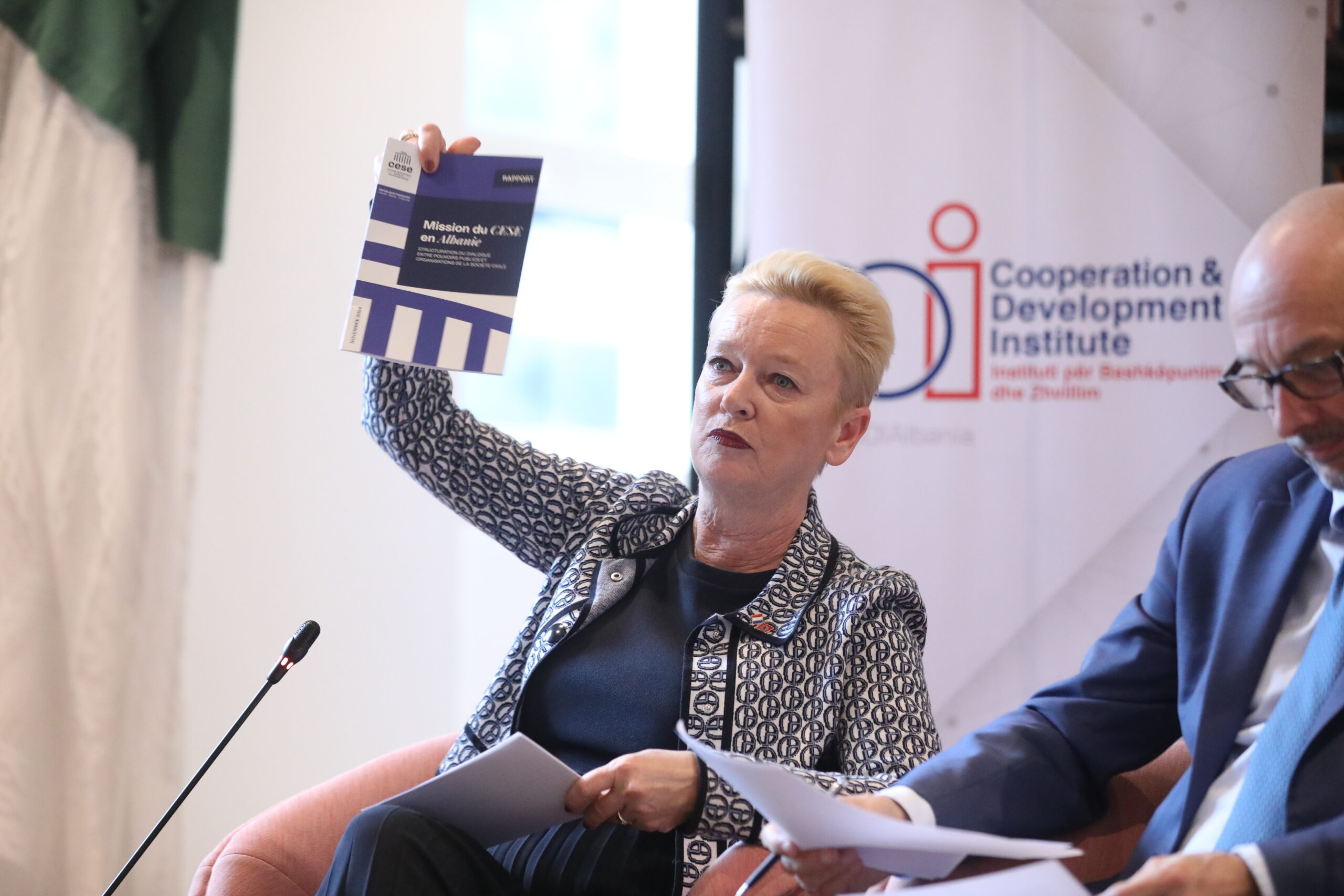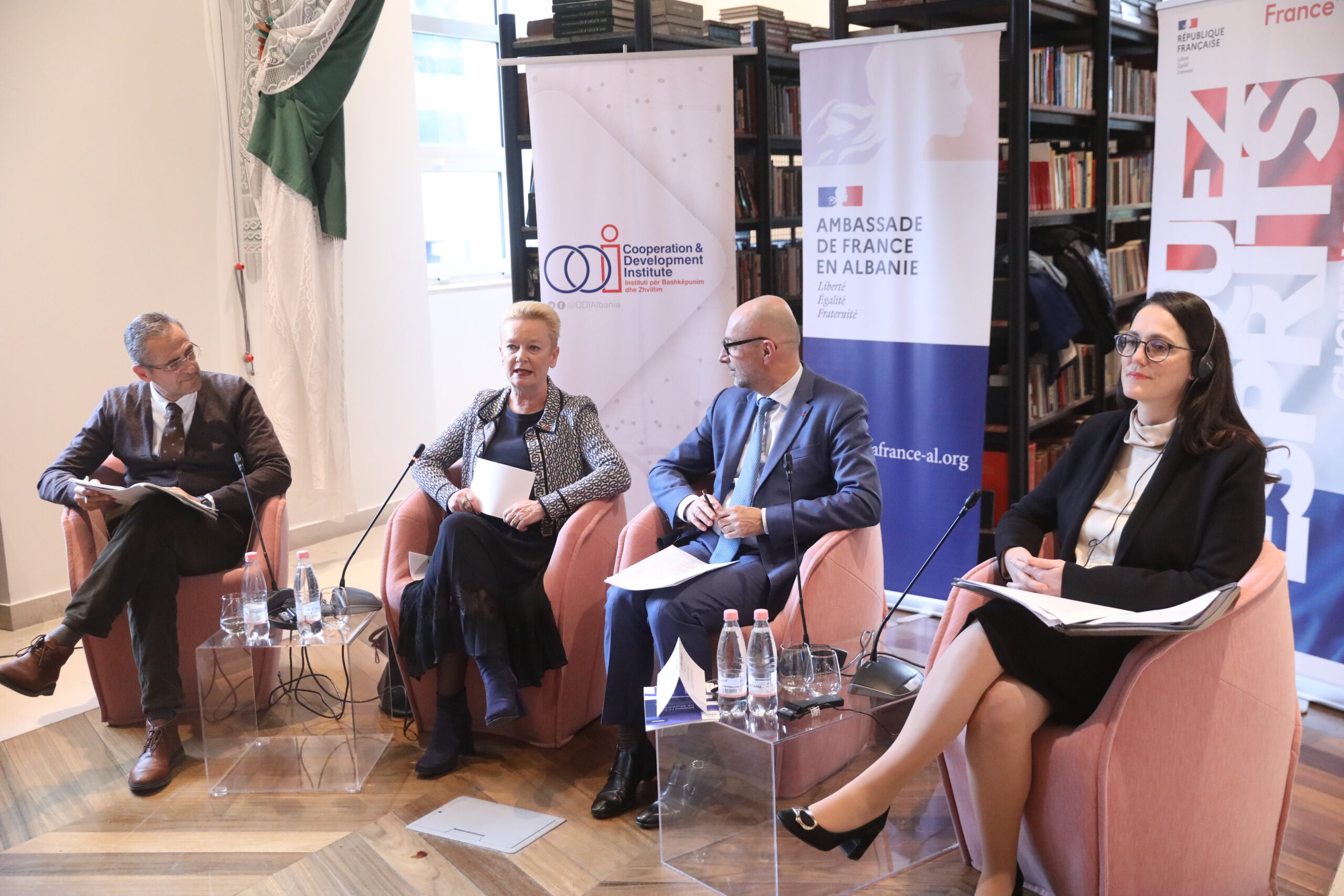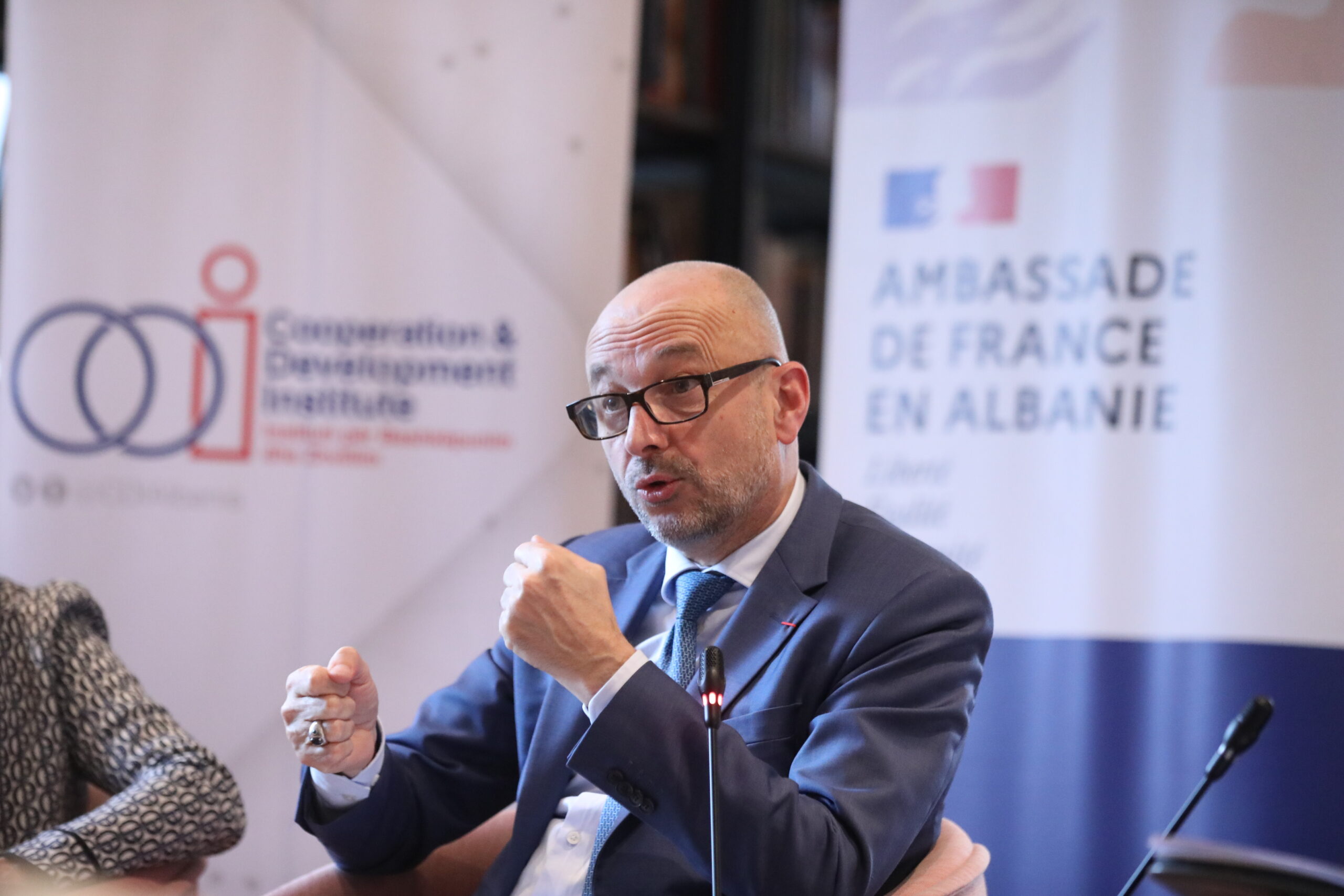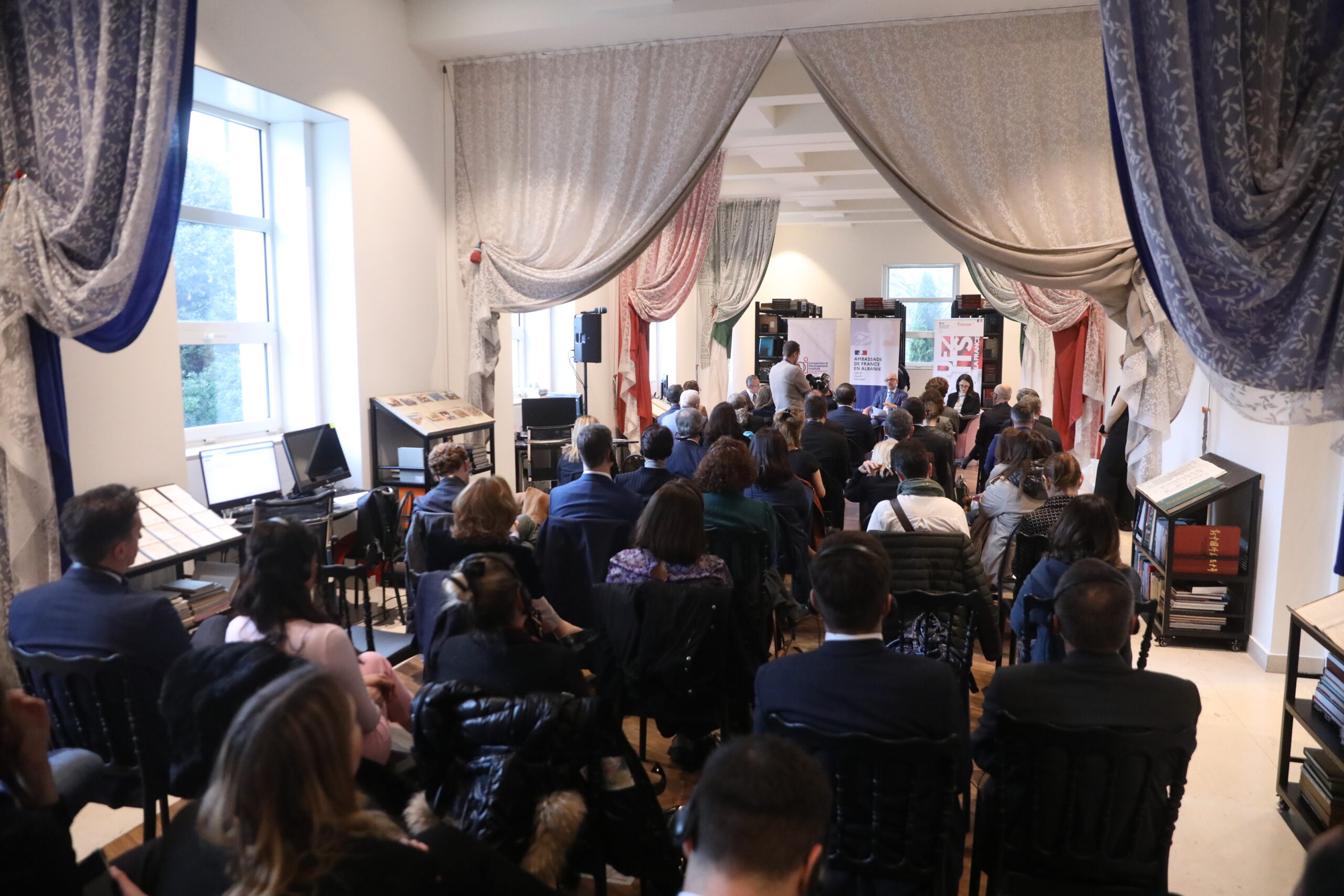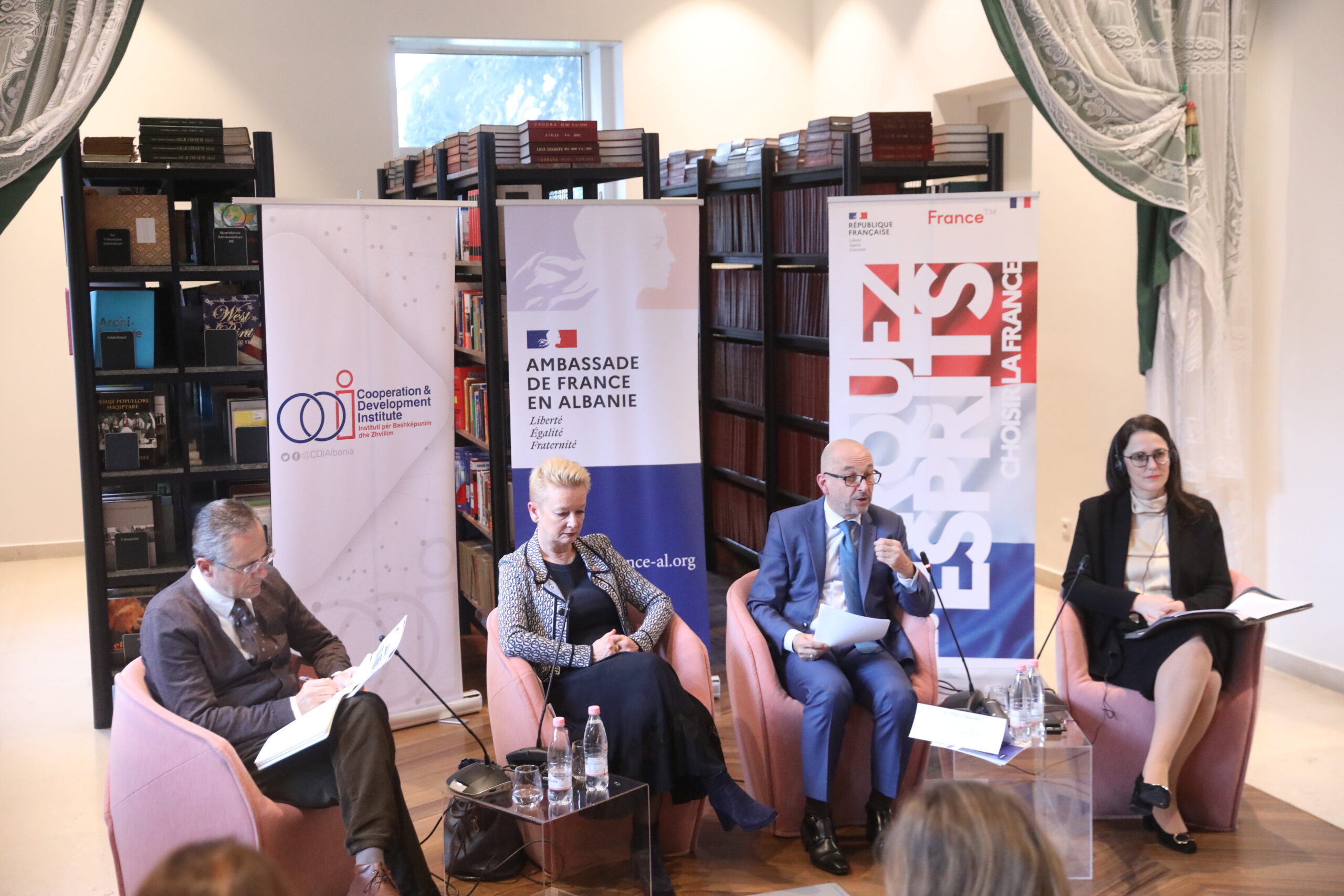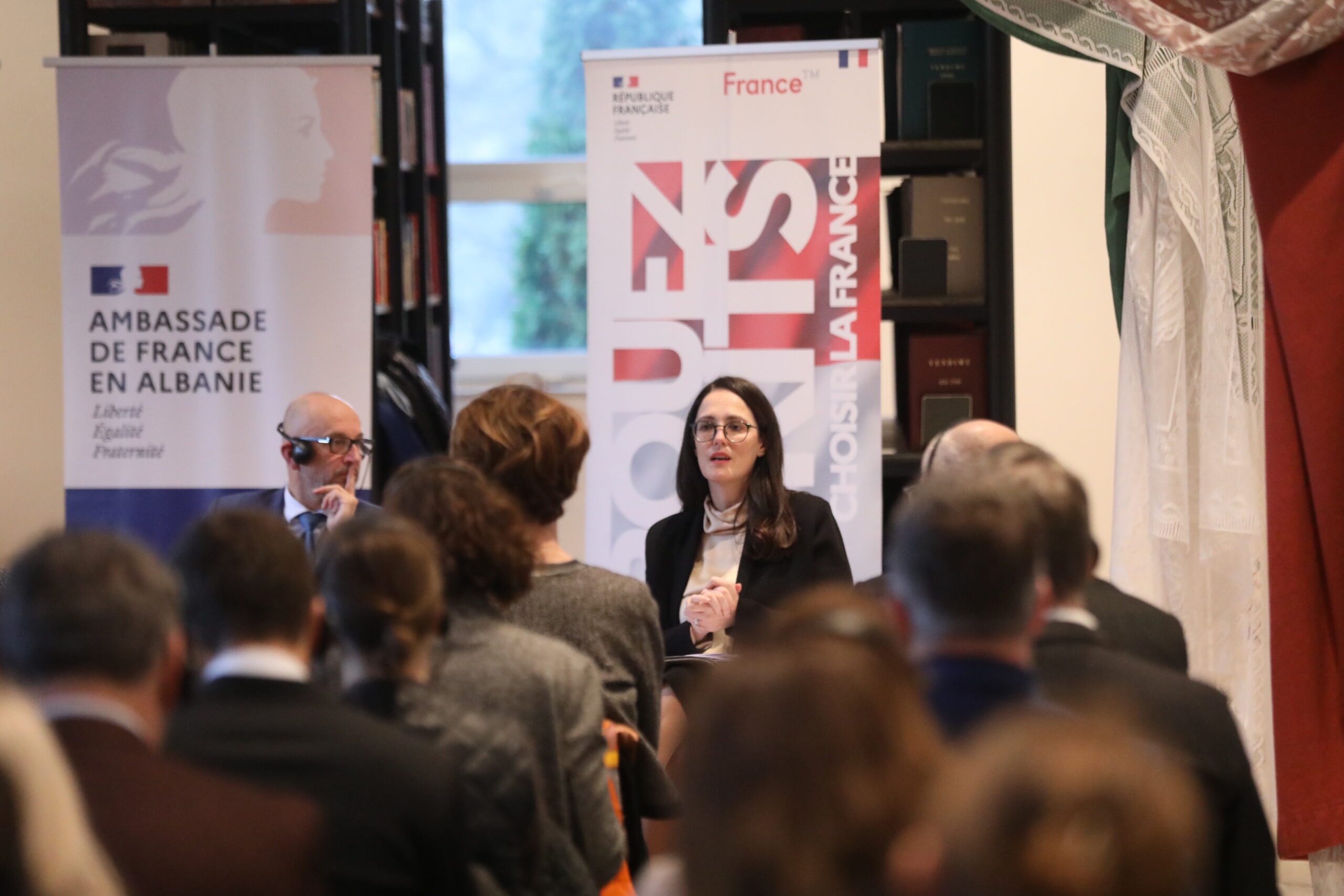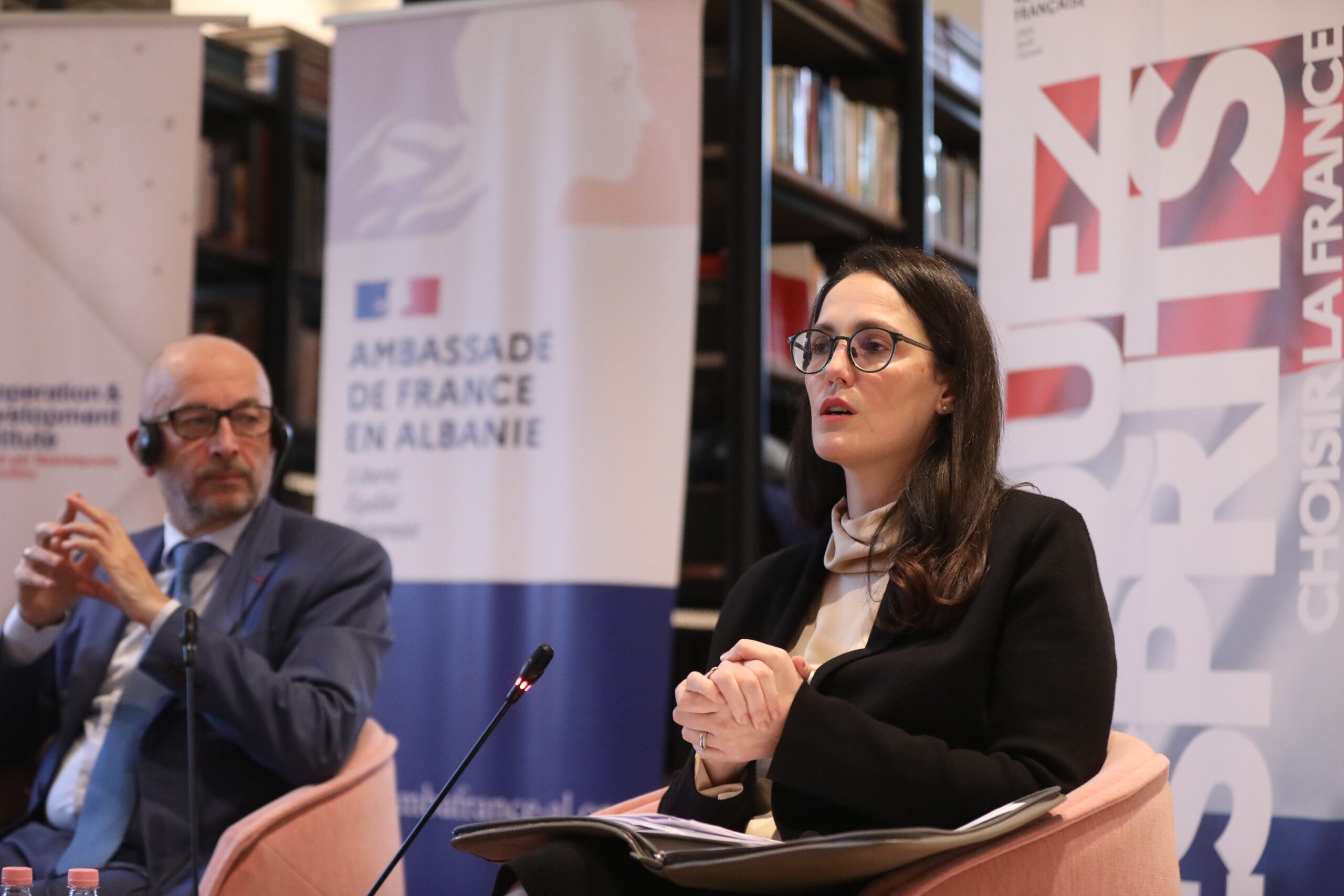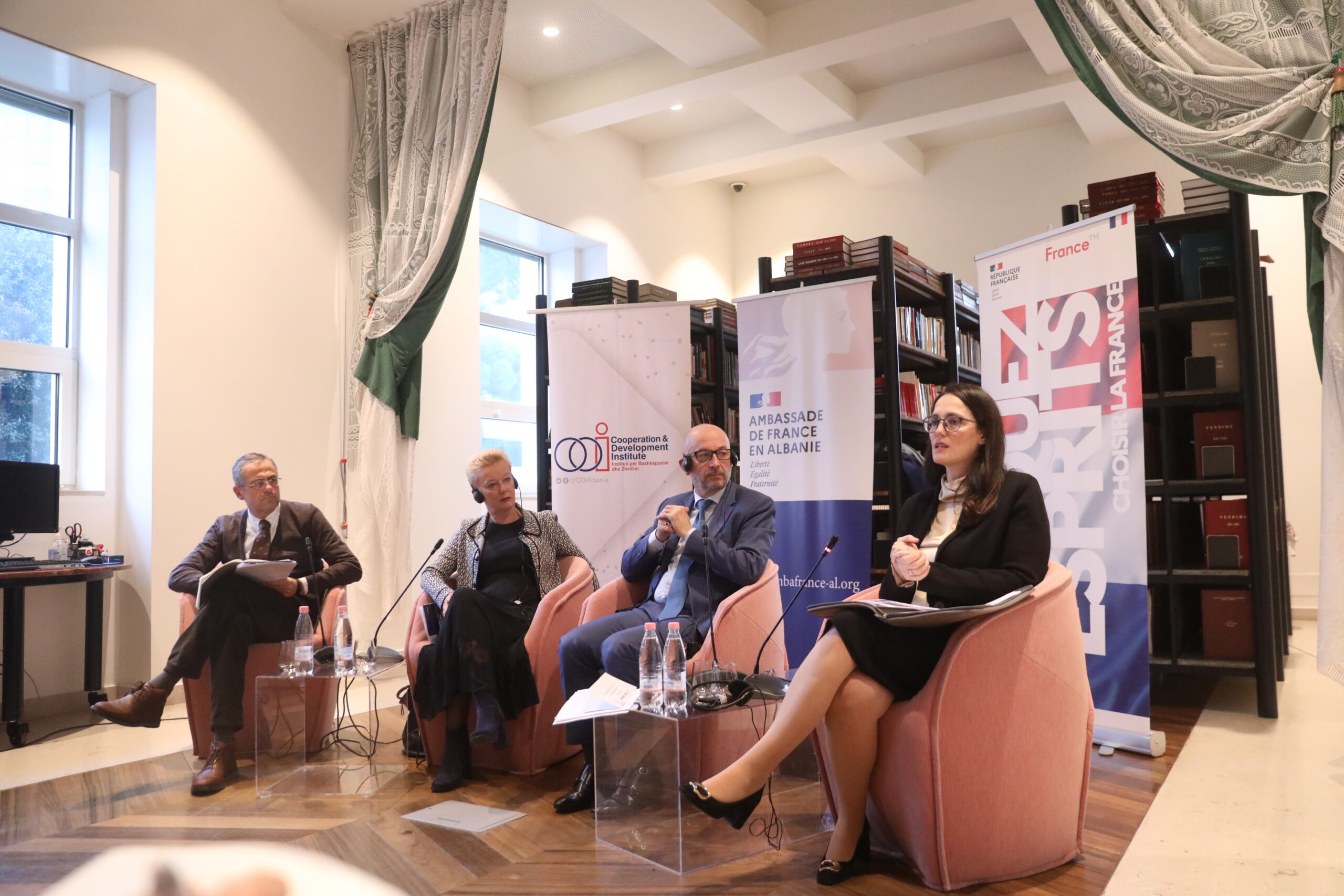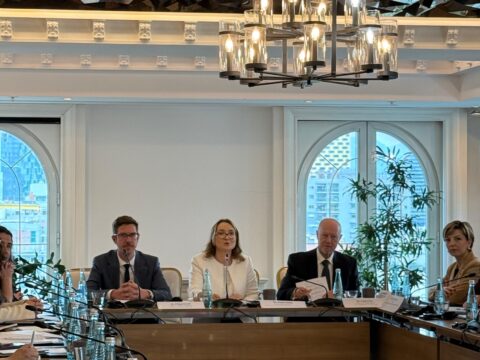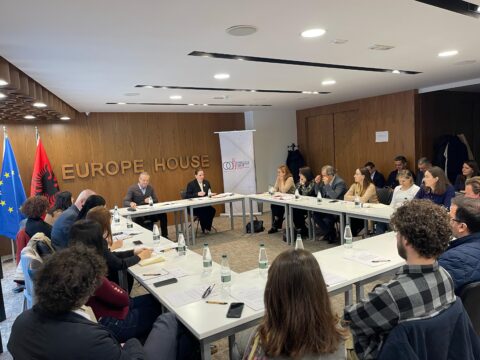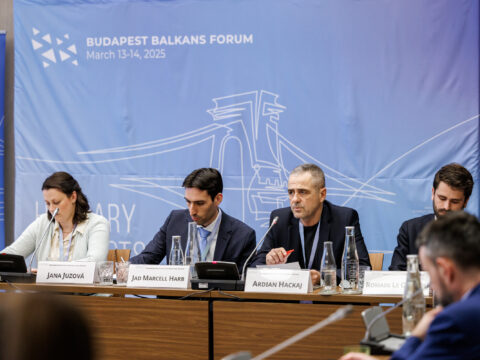The Embassy of France in Albania and the Cooperation and Development Institute (CDI) hosted an open discussion on the topic of “European Dialogue: Civil Society and European Integration” at the Center for Openness and Dialogue (COD). The event brought together policymakers, civil servants, representatives of business, trade unions and of civil society, and students from the College of Europe, Tirana Campus to discuss Albania’s path to European Union accession and the critical role of a structured civic dialogue in this process.
Albania has set an ambitious target to join the EU by 2030. With two clusters of negotiations already opened last year, the country aims to open additional clusters throughout 2025 and close all negotiation chapters by 2027. Achieving this goal requires a demanding reform agenda, which must be developed and implemented within the given timeframe. A high-quality dialogue with economic and social partners is a keystone upon which the success of this endeavor is based.
France stands firmly by Albania in its journey toward full EU membership, offering financial support and institutional assistance. In her welcoming remarks, Ambassador of France to Albania Catherine Suard referred to the visit of the President of the Economic, Social, and Environmental Council (ESEC) as a reflection of France’s commitment to strengthen the bilateral cooperation while supporting Albania’s European path.
To further strengthen dialogue between public authorities and civil society organizations, the ESEC conducted a mission to Albania in November 2024. The respective mission’s report was officially presented earlier today to Prime Minister Edi Rama by ESEC President Thierry Beaudet. In his keynote speech, Mr Thierry Beaudet, presented the main recommendations of the report prepared by ESEC in close consultation with Albanian stakeholders on potential scenarios of structuring the tri-partite dialogue between government and social actors. The report proposes the creation of a single institution to enhance the effectiveness of consultations, and tangibly contribute to the ongoing reforms.
In his keynote speech, Mr. Beaudet stated: “Organized civil society plays a crucial role in strengthening democracy, the rule of law, and trust between public authorities and citizens.
The report I submitted to the Prime Minister presents proposals aimed at structuring this dialogue to be co-developed between civil society organizations and public authorities.”
Bringing in the Albanian government’s perspective, State Minister for Entrepreneurship Protection Delina Ibrahimaj, stated: “Our goal is to establish an Economic, Social, and Environmental Council in Albania—a structure that will ensure a regular and sustainable dialogue between state institutions, the private sector, and civil society.
The successful model of ESEC in France serves as an important example of how we can institutionalize this dialogue and turn it into a force that directly influences policy-making and implementation.”
Representatives from the private sector, civil society, and EU Member States actively contributed to the discussion, reaffirming the needed strong commitment to deepen civic engagement and enhance institutional dialogue, paving the way for a more inclusive and effective EU accession process.
As a co-host and moderator of this event, CDI highlighted the systemic importance of such a structured dialogue in furthering Albanian citizen engagement at the service of social democracy beside the electoral democracy, and the importance of ESEC support in reinforcing Albania’s institutional relations and cooperation with the 21 national economic and social councils in the EU. CDI strong collaboration with the European Economic and Social Committee (EESC) in preparing the EESC Opinion on the Reform and Growth Facility for the Western Balkans, as well as the ongoing exchange focused in stepping up Albanian civil society’s engagement in the country’s reforms towards EU membership by 2030 are tangible contributions in that regard.



